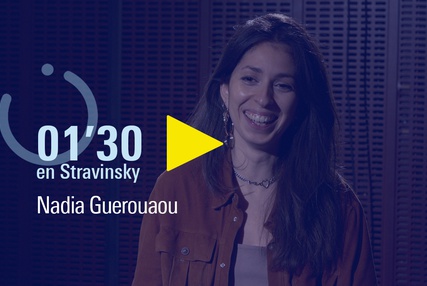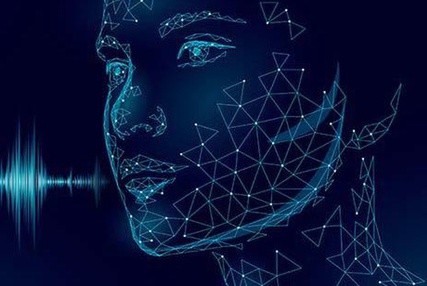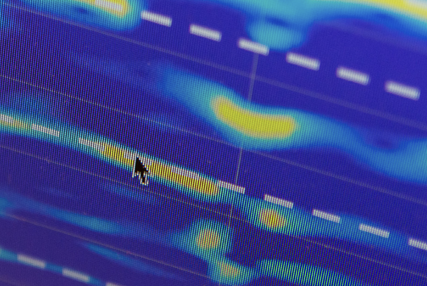Mon doctorat portait sur l'utilisation de technologies informatiques pour transformer l'émotion dans la voix, que j'appelle filtres vocaux en référence aux filtres de visage déjà largement utilisés sur les réseaux sociaux. Ma principale question était d'évaluer si ces nouvelles technologies, qui permettent un paramétrage algorithmique de l'image de soi, avaient le potentiel de façonner nos modèles cognitifs, en particulier lors des interactions sociales. Afin d'étudier cette question, mes travaux se sont appuyés sur la théorie de l'inférence prédictive et sur un concept philosophique clé, celui du potentiel anthropotechnique de ces objets.
J'ai observé ce dispositif technologique d'une part sur le plan éthique (acceptabilité morale par la population, conséquences sociétales des deepfakes vocaux et variation culturelle France-Japon) et d'autre part à travers des questions d'intérêt pour les neurosciences cognitives (incidence des filtres vocaux sur les inférences faites lors des interactions sociales et leur manipulation, étude de l'utilisation potentielle de ces filtres pour interférer avec le traitement des souvenirs traumatiques en psychiatrie).
L'impact de la culture étant connu dans la relation aux technologies émergentes, un travail a été initié au Japon, au sein du Laboratoire de Psychologie Cognitive du Pr Watanabe (Waseda University Tokyo) afin d'interroger la relation aux questions éthiques chez les chercheurs et les artistes impliqués dans les problématiques du soi synthétique (androïdes, réalité virtuelle...). Ce travail a été soutenu par une bourse JSPS.
Lien vers la thèse et son résumé détaillé
Notre première étude des filtres vocaux émotionnels consistait en une étude d'éthique expérimentale. Nous y avons testé l'acceptabilité morale au sein de la population française de divers scénarios potentiels d'utilisations de filtres vocaux au quotidien. Cette étude a montré une acceptabilité générale assez importante des divers usages proposés par nos scénarios et a été publiée dans la revue Philosophical Transactions B of the Royal Society. Différents articles de presse à visée d'un public plus large nous ont permis de revenir sur ces résultats (Le journal CNRS: L'étonnante acceptabilité des deepfakes; Liberation: Idées et débats ; AOC: Rendre sa voix plus souriante, deepfakes et filtres vocaux émotionnels ). L'impact de la culture étant connu dans le rapport aux technologies émergeantes, un travail a été entamé au Japon, au sein du Laboratoire de Psychologie Cognitive du Pr Watanabe (Waseda University Tokyo) afin d'interroger le rapport aux questionnements éthiques chez les chercheurs et aristes impliqués dans les questions des soi synthétiques (androides, réalité virtuelle...). Ce travail est soutenu par une bourse de la JSPS.
Le second volet de mon travail doctoral sur les filtres vocaux s’intéresse aux inférences faites à partir de la voix durant les interactions sociales émotionnelles. Nous avons ainsi étudié l'évolution de la voix chez des patients souffrant de Trouble de Stress Post-Traumatique (TSPT) et recherché de nouveaux biomarqueurs acoustiques dans leur voix, afin de mieux caractériser la pathologie ainsi que le processus de guérison associé à la psychothérapie d'exposition en imagination de l’évènement traumatique. Par la suite, nous avons mené une étude de perception auprès des soignants (psychologues et psychiatres) pour évaluer la possibilité de faire des inférences diagnostiques à partir de la seule écoute de la voix des patients et le potentiel de manipulation de ces inférences via l'utilisation de filtres vocaux. L'objectif de ce second volet réside dans l'utilisation de techniques de transformation de voix dans le cadre de la psychothérapie augmentée. De plus, nous avons exploré la possibilité de percevoir le rythme cardiaque d'un interlocuteur à travers sa voix seule. Compte tenu du lien entre l'activité cardiaque et l'état émotionnel, il est fort probable que ces informations sur le rythme cardiaque des personnes, éventuellement déduites de manière inconsciente, contribuent à nos inférences sur l'état émotionnel d'un locuteur.
En parallèle, j'enseigne depuis 2018 la Neuroéthique aux étudiants de Psychologie et Neuropsychologie (L3 et M2) à l’Université de Lille. J’y aborde principalement les usages actuels et potentiels des nouvelles technologies émergeant de la recherche en neurosciences cognitives; les neurotechniques et l’impact que ces usages détournés, dans un cadre d’augmentation notamment, pourraient avoir sur nos sociétés. Ces outils, en plein essor, demandent une adaptation continue de la part des usagers et des experts, des débats ouverts permettant de dépasser le techclash et faire émerger les questions essentielles pour un usage éclairé de ces technologies.
Thèse co-encadrée par le Pr Guillaume Vaiva (@GuillaumeVaiva) et le Dr Jean-Julien Aucouturier (@jjtokyo)
Courriel : Nadia.Guerouaou (at) ircam.fr





